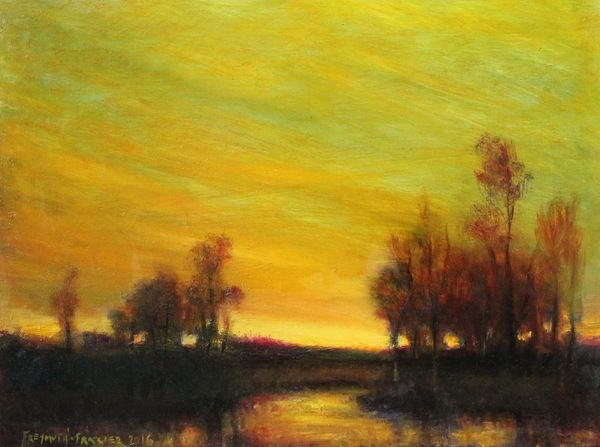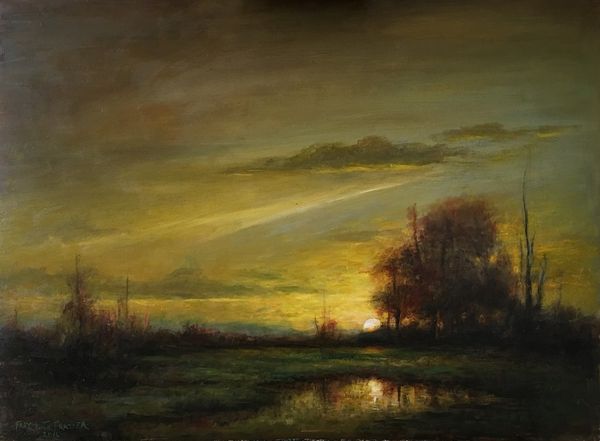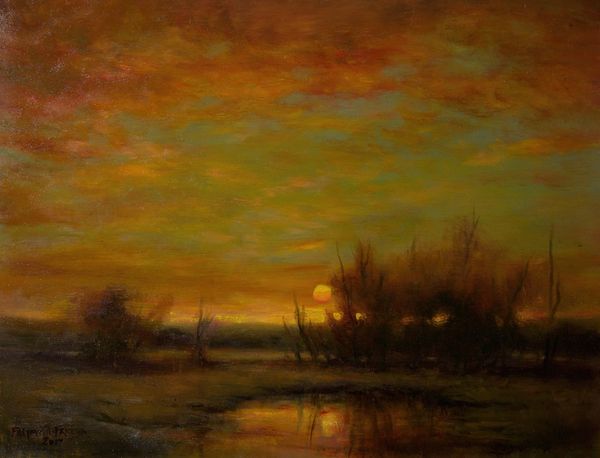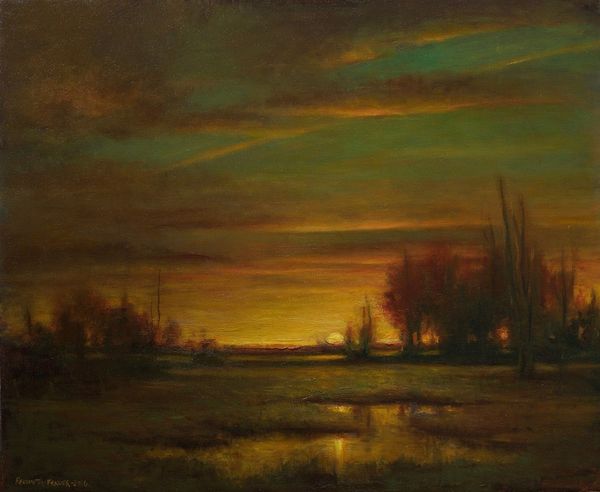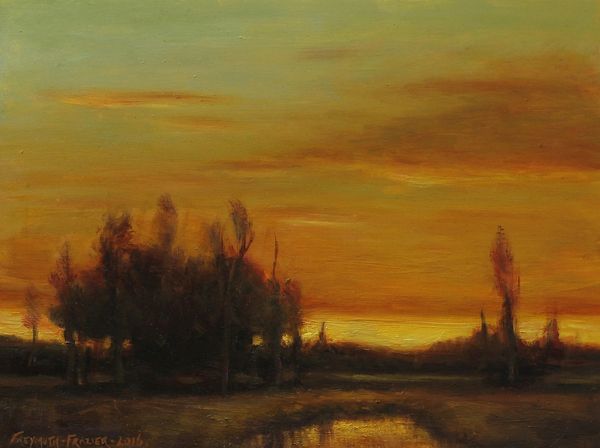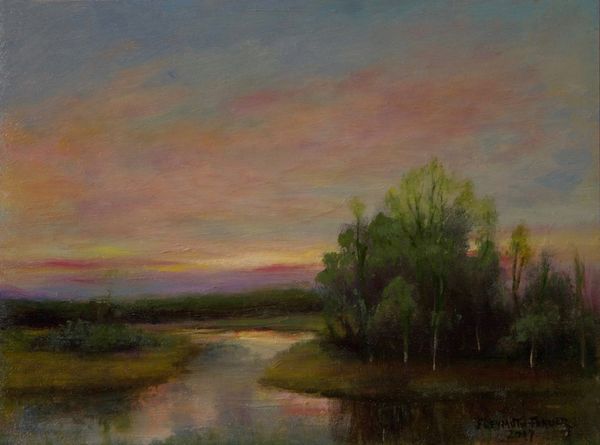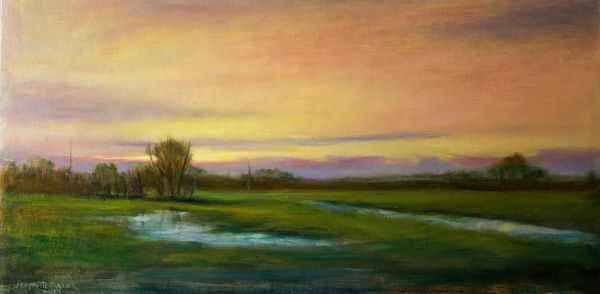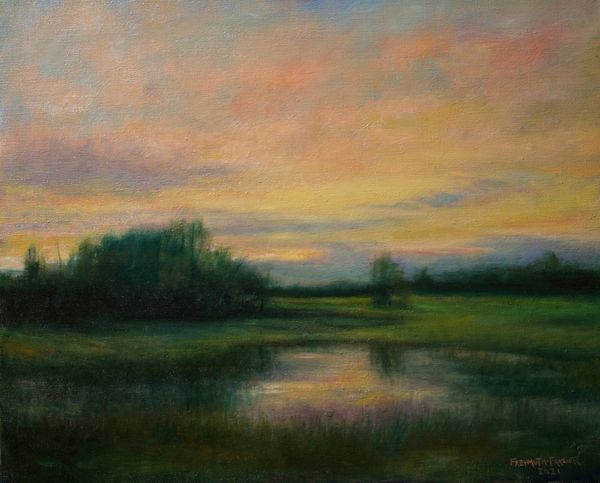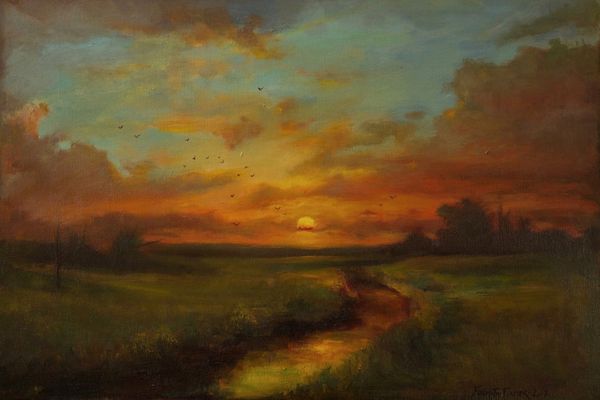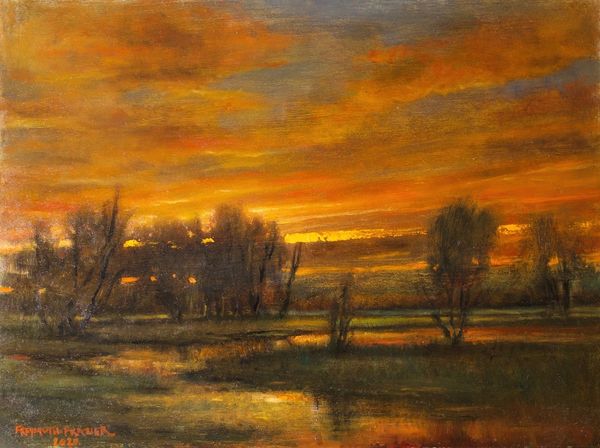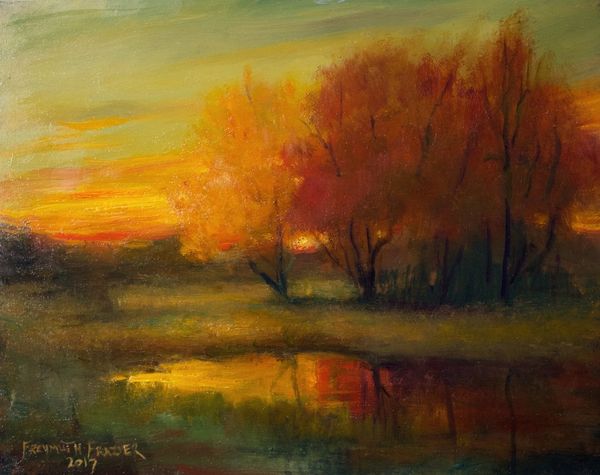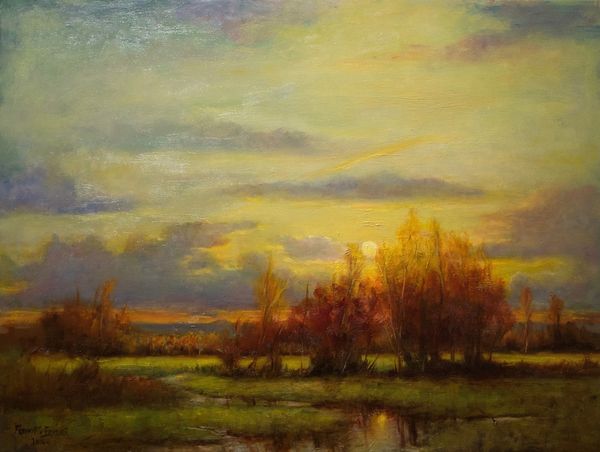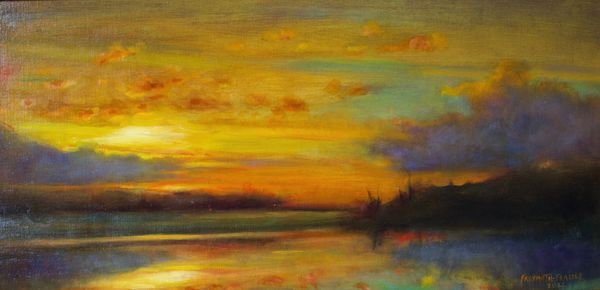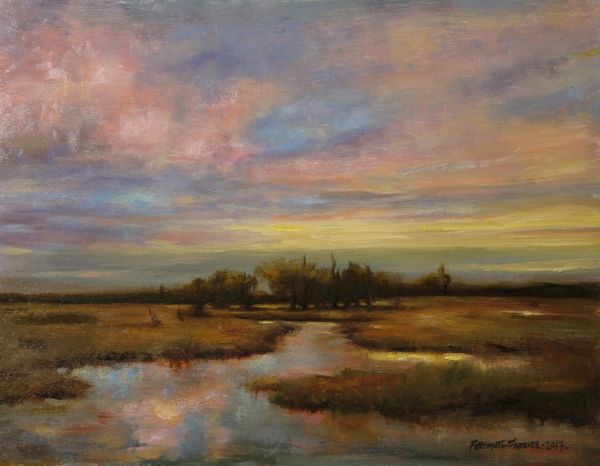
Copyright: Modern Artists: Artvee
Editor: This is Rose Freymuth-Frazier's "Quiet Evening," painted in 2021, with acrylic paint, I believe. It's incredibly evocative—the colors, the sky, the feeling of stillness. How do you interpret this work, particularly in terms of its historical context? Curator: I'm immediately drawn to how this piece resonates with historical landscape painting, especially Impressionism, but pushes further. Think about the legacy of plein-air painting. What does it mean for a contemporary artist to engage in that tradition, especially in our era marked by climate anxiety and ecological awareness? Does this quiet evening suggest complacency, or does it invite a deeper, more critical look at our relationship with nature? Editor: That’s a really interesting point! I hadn’t considered the environmental implications. I was more focused on the aesthetic beauty. Curator: Exactly! The aesthetic can't be separated from its context. What is "beauty" when the landscapes we depict are under threat? Consider the socio-political implications. The ‘quiet evening’ may serve as a potent reminder of what we stand to lose if we fail to address environmental injustice and climate change. Does the impasto technique evoke a sense of urgency, almost a textural plea for attention? Editor: I see what you mean. The thickness of the paint adds a certain weight to the scene, a physicality that feels almost… mournful? Curator: Mournful, perhaps. Or perhaps hopeful that such evenings can continue. Freymuth-Frazier's contemporary lens makes us think about these traditions in light of gender, class, and access to these kinds of idyllic scenes. Who has the luxury to experience such ‘quiet evenings,’ and whose stories are often missing from these representations of nature? Editor: This has completely shifted how I see the painting! It's no longer just a pretty landscape, but a statement. Curator: Indeed. And it reminds us that art is never created in a vacuum. "Quiet Evening" is both beautiful and provocative, urging us to consider its place within a complex web of history, politics, and environmental concerns.
Comments
No comments
Be the first to comment and join the conversation on the ultimate creative platform.
